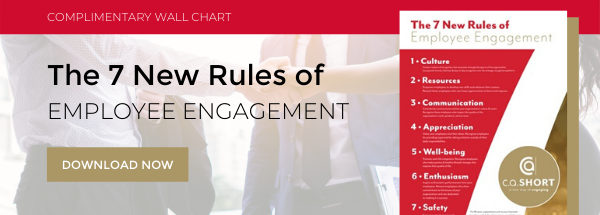Employee Engagement & Retention: Is Pay an Employee Motivator?

 Let's be honest. Giving an employee their paycheck is truly nothing more than paying a bill - you're simply making a payment for services rendered. Employees feel no more appreciated or recognized when receiving their hard-earned pay than your mortgage company feels when you submit your monthly mortgage payment. Employee recognition and their pay for performance are two totally different points of discussion. The great debate is, which one is more closely linked to recognition?
Let's be honest. Giving an employee their paycheck is truly nothing more than paying a bill - you're simply making a payment for services rendered. Employees feel no more appreciated or recognized when receiving their hard-earned pay than your mortgage company feels when you submit your monthly mortgage payment. Employee recognition and their pay for performance are two totally different points of discussion. The great debate is, which one is more closely linked to recognition?
Are Pay and Job Satisfaction Related?
According to the Journal of Vocational Behavior, there's only a 2% overlap between pay and employee job satisfaction, which leads us to believe that pay for performance as a motivator is a fallacy. Increasing an employee's pay is not directly linked to job satisfaction, which is directly linked to retention.
Employee retention IS attributed to job satisfaction, leaving employers charged with tapping into the intrinsic rewards that increase employee engagement and satisfaction. Consider "emotional paychecks" as one of those rewards. Unlike your normally scheduled paycheck distribution, emotional paychecks are conceptual; they tap into the 5 factors that employees want from their employer. Those factors are:
- An employee's sense of workplace purpose
- Employees know what is expected of them
- Employees are given chances to improve
- An attentive manager that keeps employees informed of organizational changes and helps them get ahead
- Employees work with people they like, and organization's quickly deal with "company culture terrorists"
The Deeper Meaning of "Emotional Paychecks" for Employee Engagement
When employees feel that the above 5 factors are being satisfied, their engagement increases, which directly affects employee retention. It is no secret that high levels of employee engagement increase an organization's bottom-line and employee turnover costs the company around 25% of the individuals average annual salary. These numbers make retention a priority for business leaders.
When armed with a robust employee recognition program that encompasses the factors of the "emotional paycheck", organization's will see their employee engagement numbers drastically rise and their turnover rate diminish. When feelings are rewarded, it drives behavior and behavior, not pay, increases and determines overall organizational success.
 At C. A. Short, we are your partner for increased employee engagement resulting in increased performance outcomes to grow your bottom line. Our process and research-based platform help you engage your team in order to increase your bottom line, motivate your staff to the benefit of the entire organization, and reward your people for the positive changes they make. To request a Complimentary Consultation, please click here.
At C. A. Short, we are your partner for increased employee engagement resulting in increased performance outcomes to grow your bottom line. Our process and research-based platform help you engage your team in order to increase your bottom line, motivate your staff to the benefit of the entire organization, and reward your people for the positive changes they make. To request a Complimentary Consultation, please click here.